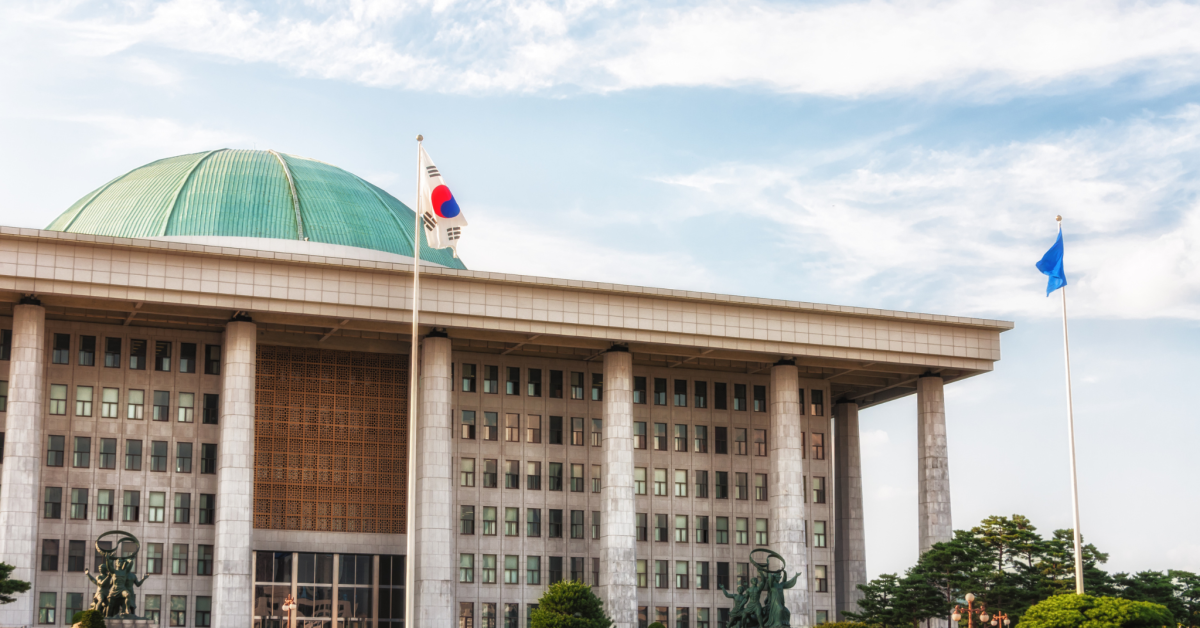Understanding Thailand's PM Reshuffle
At a Glance
- Political titan and ex-Prime Minister Thaksin Shinawatra’s daughter, Paetongtarn, has received royal endorsement as Thailand’s new Prime Minister. She replaces outgoing ally Srettha Thavisin, who the Constitutional Court dismissed.
- Paetongtarn oversees a fragile and awkward coalition of long-time archnemeses—her own Pheu Thai Party and military junta-aligned parties. A new chapter of political upheaval is feared. The last two Shinawatra’s governments were deposed in junta-led coups in 2006 and 2014.
- Paetongtarn will form a Cabinet in the coming weeks and face uphill economic and domestic partisan political challenges.
Back in the Reins of the Shinawatra Family
Paetongtarn Shinawatra was royally endorsed as Thailand’s new Prime Minister on Sunday, August 18, following a surprise ouster of Prime Minister Srettha Thavisin by Thailand’s Constitutional Court. Srettha was dismissed by the Courts on Wednesday, August 14, on charges of violating the Constitution by appointing a minister with past convictions. He is the fourth Prime Minister to be dismissed by the Courts in 16 years. Hailing from the same ruling Pheu Thai coalition as Srettha, Paetongtarn will form a Cabinet in the coming weeks.
At 37, Paetongtarn is Thailand’s youngest prime minister and is also notably the youngest daughter of Thaksin Shinawatra—a divisive political titan and ex-Prime Minister who was deposed in a military coup in 2006 but continues to hold significant sway over Thai politics and the Pheu Thai Party.
The Shinawatra family remains a highly consequential dynasty within Thailand. Making his fortune in telecommunications, Thaksin was elected Prime Minister consecutively in 2001 and 2005 in a landslide—practically unheard of in Thailand’s revolving door politics and frequent coups. His brand of Thaksinomics saw rapid economic transformation and wrought Thailand’s rural agrarian north into his personal political stronghold. Thaksin’s deposal in the 2006 coup plunged the country into decades of political turmoil and high-profile street clashes. Multiple Shinawatras after Thaksin have been removed from their premierships—including Somchai Wongsawat, his brother-in-law who was deposed by the Constitutional Court a few months into the premiership, and Thaksin’s own younger sister, Yingluck Shinawatra, who was subsequently removed in the 2014 coup after serving as prime minister since a 2011 landslide victory. Thaksin’s party has also seen repeated dissolutions by the Constitutional Court and now operates in its latest reincarnation—the Pheu Thai Party.
Srettha’s dismissal and the return of a Shinawatra to the highest political office have threatened the fragile post-electoral ruling alliance between Pheu Thai and the military junta-aligned parties. Deep uncertainty remains over the longevity of the latest Shinawatra Cabinet.
Party Politicking
The latest political turmoil follows a watershed election in 2023 that saw a dramatic remaking of Thailand’s calcified political alliances. A new reformist third-party Move Forward Coalition had unexpectedly swept polls, surging past both the junta-aligned parties and the junta’s long-time nemesis, the Pheu Thai Party. One critical popular policy agenda was reforming Thailand’s severe lèse-majesté laws, which makes it illegal to defame, insult, or threaten the monarch. Despite capturing the plurality of seats, Move Forward was stymied in forming a government by the junta-packed Senate upper house. Move Forward has also since been dissolved by the same Constitutional Court.
Faced with a political void, an awkward bargain was subsequently reached between die-hard rivals Pheu Thai and junta-backed parties, with Pheu Thai forming government. Srettha was sworn in as Pheu Thai’s Prime Minister in September 2023. As part of the bargain, Thaksin was allowed to return to Thailand from his 15-year exile. Jail sentences previously imposed on Thaksin were commuted to a year-long sentence by King Vajiralongkorn. With no real political experience, Srettha was seen as a seat warmer until Thaksin or one of his closer allies assumed the premiership.
Pheu Thai’s current ruling coalition is now in an unenviable position. Its marriage of convenience with former archnemeses and jettisoning campaign promises of its original alliance with Move Forward was seen as a betrayal of its base. Where Move Forward had deeply energized Thai politics with promises of systemic political reform, the post-electoral fait accompli has been a disillusioning slap in the face of voters. Nevertheless, one thing working to Paetongtarn’s advantage is the broad nostalgia of Thais and international businesses for the economic boom of the Thaksin era.
Internally, Pheu Thai’s fragile marriage of convenience is bursting at the seams with competing junta-aligned and independent parties jockeying for power. One such coalition member is the Bhumjaithai Party, known for its mercenary and chameleon politics, which has overtaken Pheu Thai in its populist mantle.
Paetongtarn now faces immense pressure to satisfy the party’s constituency while keeping its coalition partners in check. The repercussions of snubbing junta-aligned parties are clear—the fates of the past two Shinawatra governments hang heavy over Paetongtarn. Furthermore, of all the Shinawatras who have held office, Paetongtarn bears the least political experience.
International Businesses: Stay the Course
Policymaking has been hampered in the last few years amid the political crisis. Until the April 2024 Cabinet reshuffle, many of Pheu Thai’s political appointees to key ministry positions were short-term “rewards” to political patrons, for whom a limited ministerial tenure would secure cushy pensions. The initial cabinet slate of patronage saw reduced technocratic expertise and effective policymaking. Where the new April 2024 Cabinet has seen a normalization of governance and a return to concrete long-term policy plans, the latest upheaval will likely set back this timeline—even despite nostalgia for Thaksin’s economic prosperity.
It is also unclear how much the military junta is willing to tolerate a full return of Shinawatras to Thai politics. Thaksin-aligned parties have thrice been removed by the junta or the Constitutional Court—in 2006 against Thaksin’s cabinet, in 2008 against his brother-in-law, and in 2014 against his sister’s cabinet. Thaksin’s increasing return to the direct frontlines of Thai politics might also jeopardize the stability of this current junta-Pheu Thai coalition.
Thailand’s political instability has remained a feature, and its economy has remained resilient against upheaval. In the realm of economy, most parties are aligned on economic priorities. The poor international economic outlook and tight competition from regional rivals, particularly Vietnam, in securing trade deals and foreign investments have been cited as worrying developments. The COVID-19 slump remains top of mind across the political spectrum. Both Pheu Thai and other successor governments will likely continue pro-business and pro-trade policies.
International businesses are recommended to keep abreast of political developments and maintain good working relationships with Thai government agencies.
For further advisory and insights on stakeholder communication and government relations in Thailand and Asia-Pacific, reach out to Richard.Andrew@edelmanEGA.com and Daryl.Sim@edelmanEGA.com.



